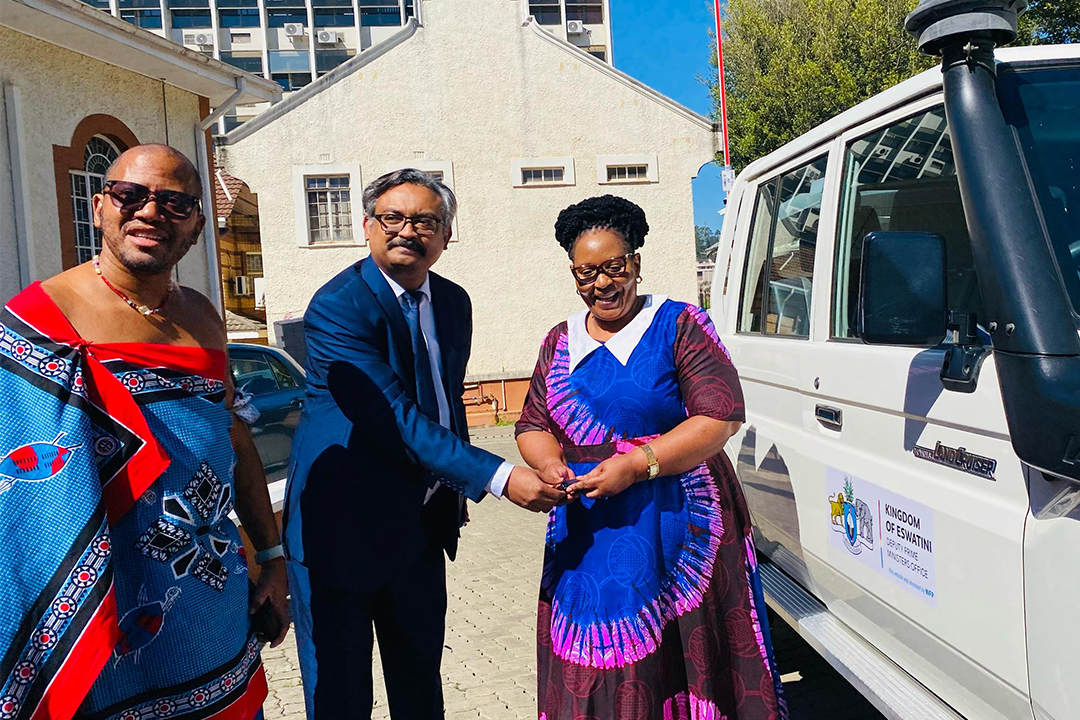By EPN Reporter
SHISELWENI – On a crisp morning kissed by the warmth of autumn sun, a powerful symbol of hope rolled into the Deputy Prime Minister’s Office—a gleaming Toyota Land Cruiser, followed by a handover of laptops and essential supplies, all courtesy of the World Food Program (WFP). But this wasn’t just a donation; it was a catalyst for transformation.
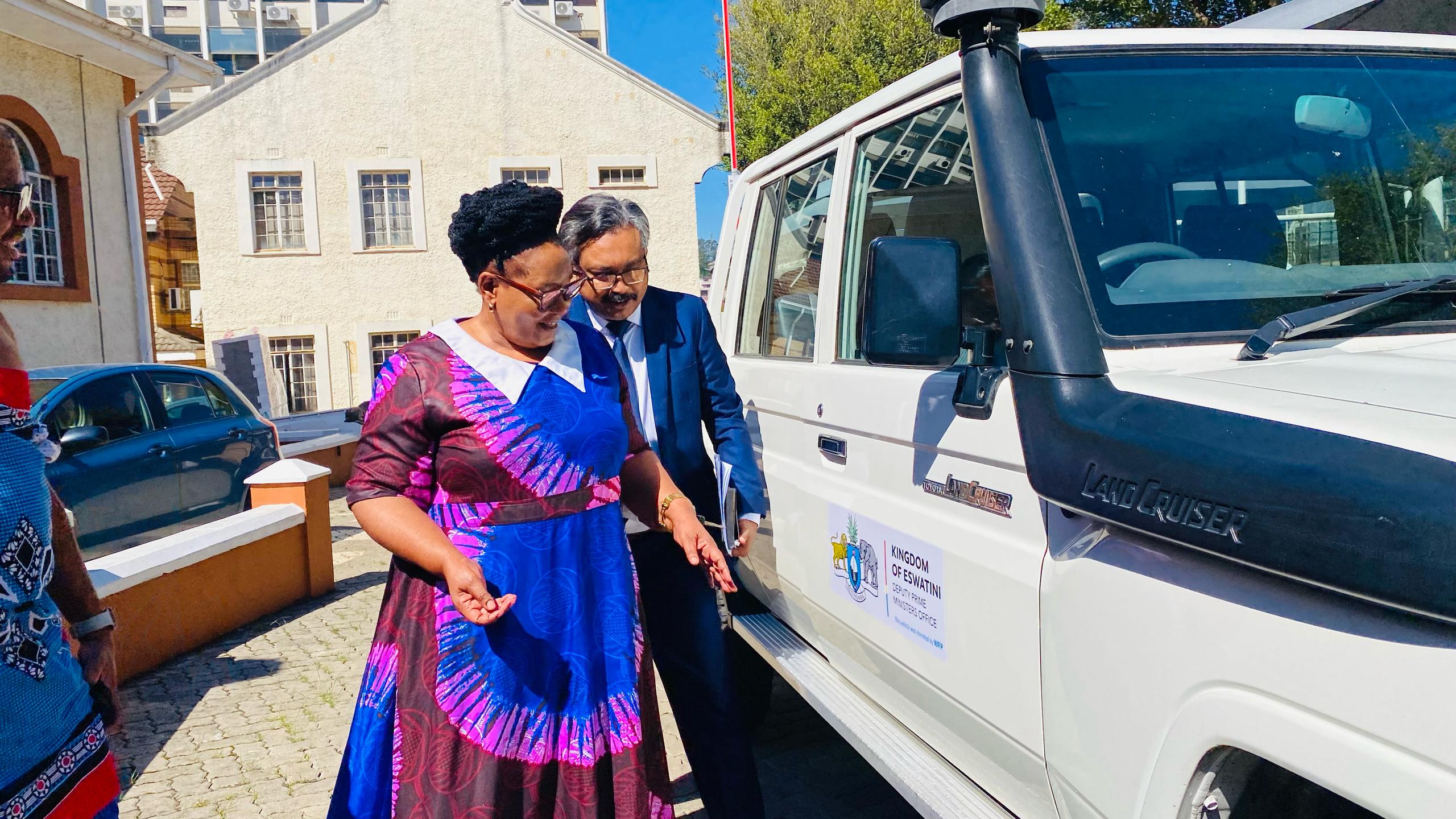
Valued at over E850,000, this generous gift from WFP is more than a logistical boost—it is a strategic investment into Eswatini’s future. The assets are earmarked to accelerate the development of the National Dynamic Social Registry (NDSR), a visionary initiative that will revolutionize how the country identifies and supports its most vulnerable citizens.
WFP’s Ashraful Amin, beaming with purpose, officially presented the donation on behalf of the organization. In his remarks, Amin highlighted that this support goes hand in hand with WFP’s ongoing commitment to feeding 27,500 vulnerable children daily through 863 neighborhood care points (NCPs).
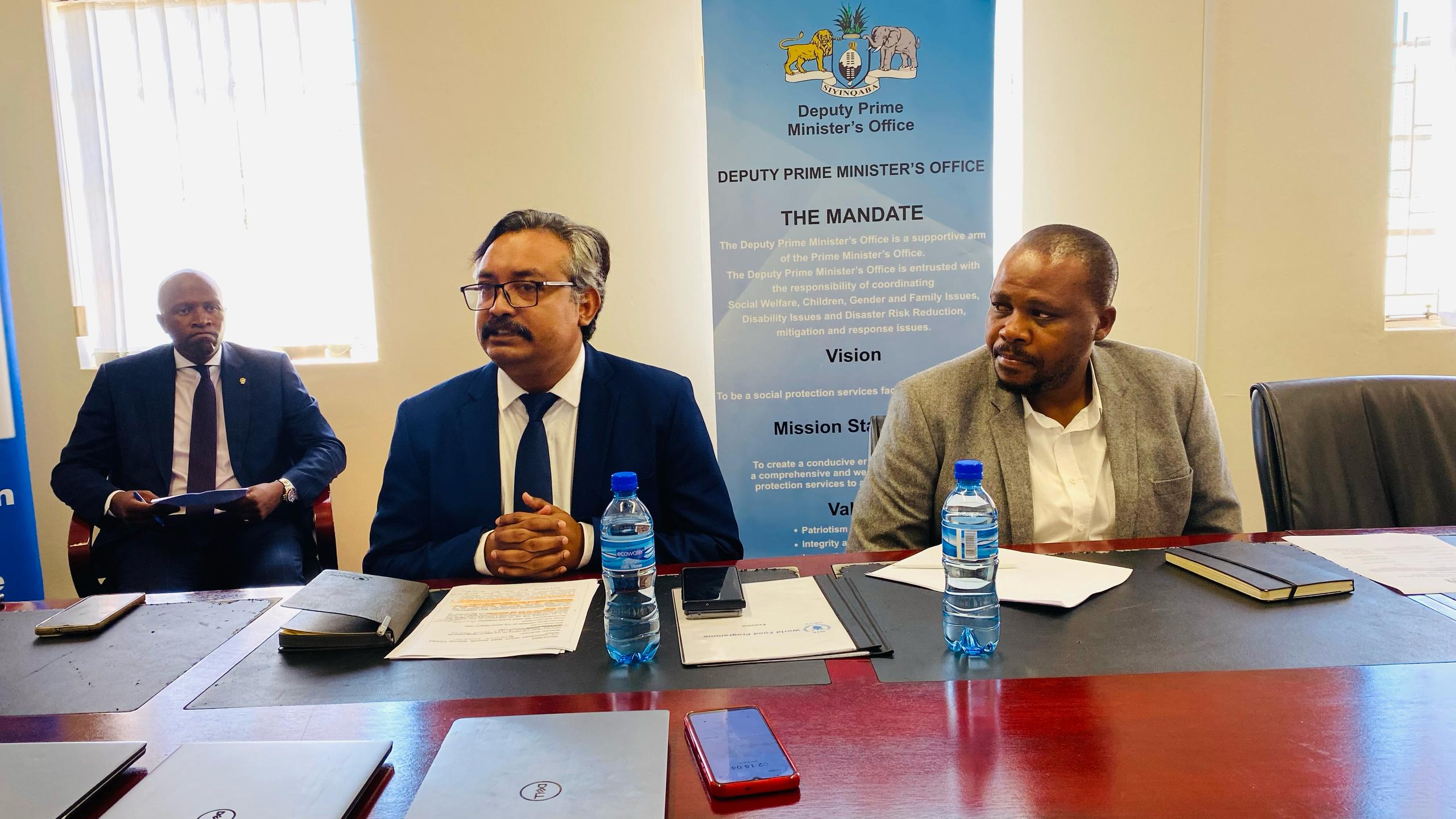
“We see this contribution as planting seeds for a more inclusive Eswatini,” he said. “The NDSR will not only support targeted social welfare efforts but will also enhance our own assessments, ensuring that no child is left behind.”
Receiving the donation with heartfelt appreciation, Deputy Prime Minister Thulisile Dladla expressed that the timing couldn’t have been better.
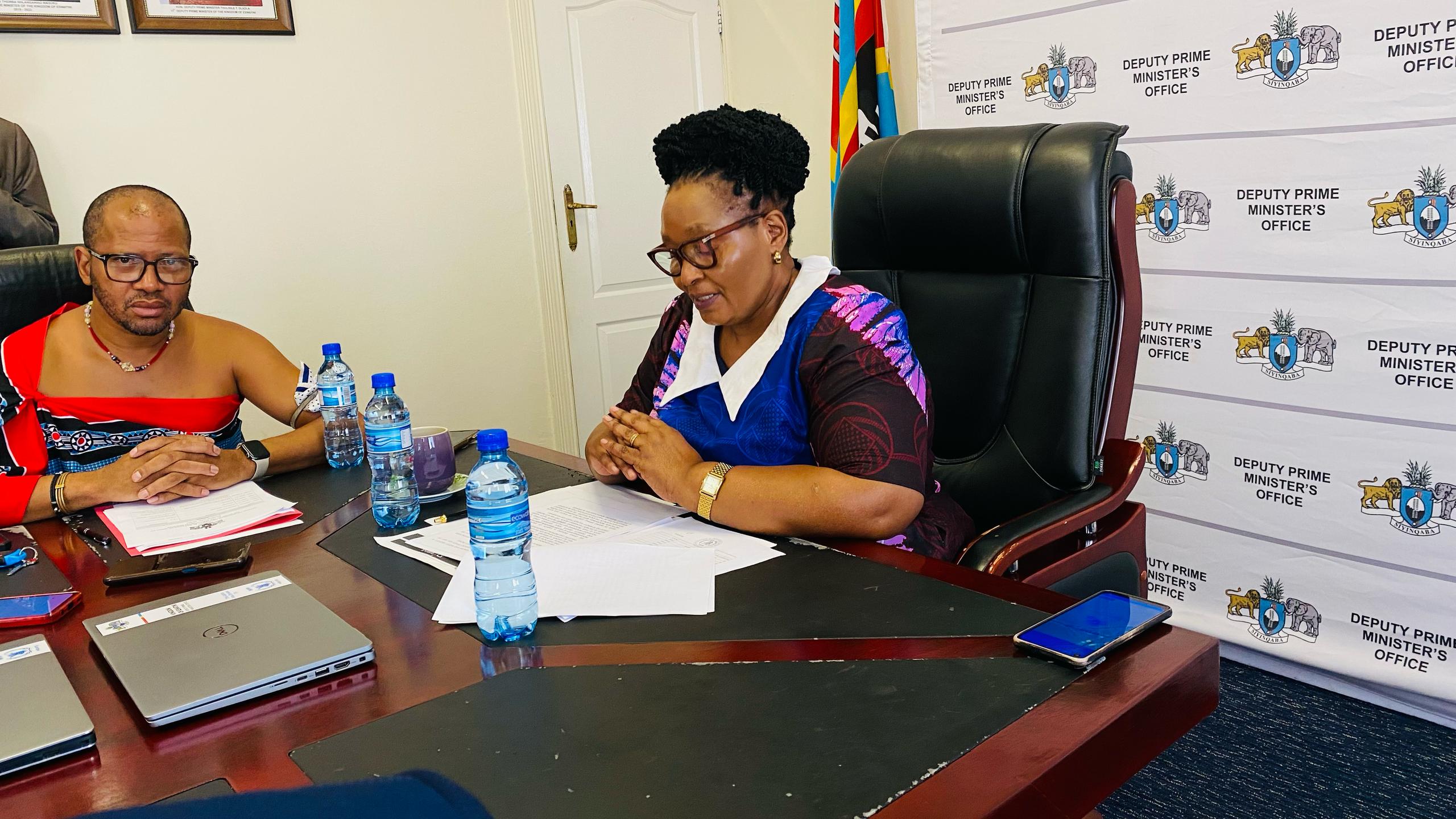
“As we embark on this groundbreaking project to develop the NDSR, we’re reminded that real change is only possible through collaboration,” she said. “With tools like these, we’re not just collecting data—we’re collecting hope, shaping lives, and restoring dignity.”
The NDSR will serve as a national information hub, identifying households in need using data-driven insights derived from Eswatini’s latest household income, expenditure, and vulnerability surveys. This will help streamline support for critical programs such as grants for orphans, the elderly, persons with disabilities, and child-headed households.
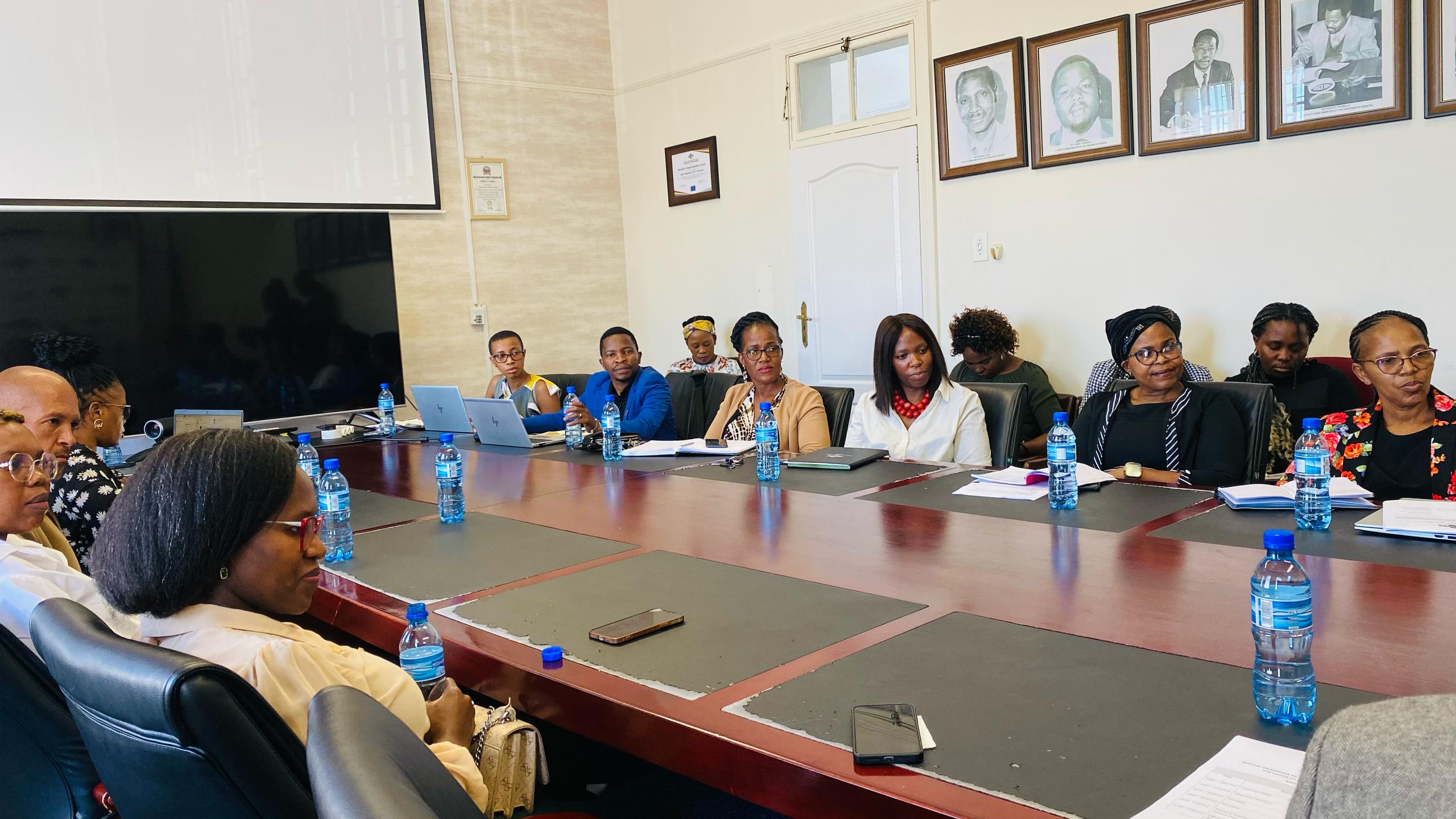
For too long, challenges like “double dipping” and inefficiencies have hindered the delivery of support to the most deserving. But with this new system, precision targeting will become the new norm, ensuring every lilangeni spent makes a meaningful impact.
Data collection is already underway in the Shiselweni Region, with field teams committed to gathering accurate, real-time information from communities.
In a country known for its sense of unity and ubuntu, this partnership between the government and WFP is a shining example of what’s possible when compassion meets innovation.
Today, Eswatini doesn’t just celebrate a donation—it celebrates a new chapter of accountability, dignity, and shared purpose.

